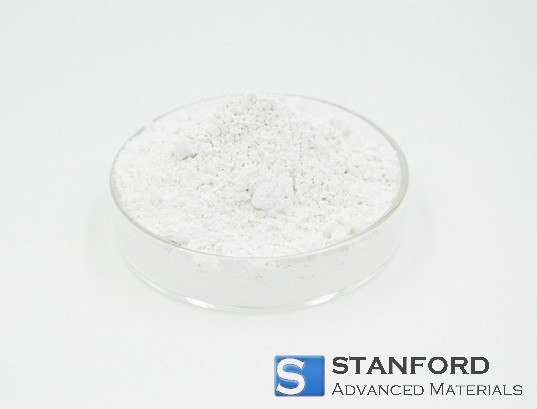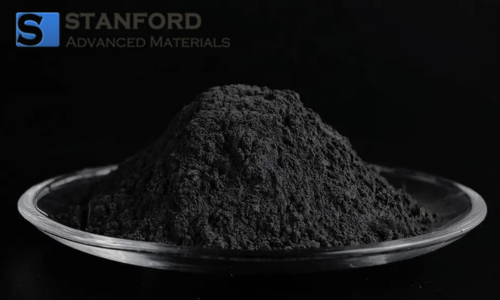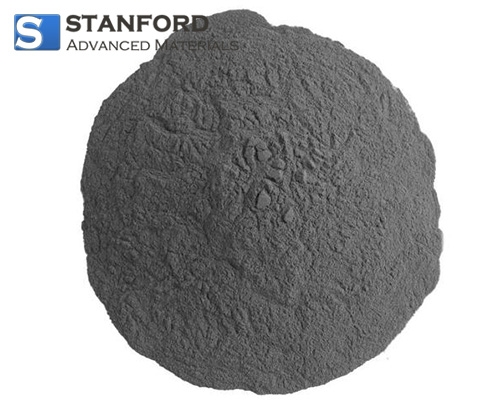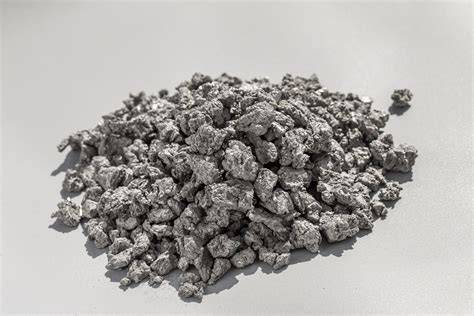

Hafnium-based powders are crucial materials in various high-tech industries because of their unique properties. This article compares the properties and applications of six common hafnium-based powders. We will explore their physical and chemical properties and discuss specific applications in detail.
Physical Properties:
Pure hafnium powder is characterized by its high density (13.31 g/cm³), ductility, and ability to absorb neutrons efficiently. It has a melting point of approximately 2233°C and a boiling point of 4602°C. These properties make hafnium a critical material for high-temperature applications.
Chemical Properties:
Hafnium is highly resistant to corrosion, especially in acidic environments. It forms a stable oxide layer on its surface, which protects it from further oxidation. Hafnium also has good compatibility with other metals and can form stable alloys.
Applications:
1. Nuclear Reactors: Pure hafnium is widely used in control rods of nuclear reactors due to its excellent neutron absorption capability.
2. Aerospace: Its high melting point and corrosion resistance make it suitable for use in high-temperature environments, such as jet engines and spacecraft components.
3. Electronics: Hafnium is used in the semiconductor industry for manufacturing gate insulators in integrated circuits.
Physical Properties:
Hafnium oxide (HfO₂) powder is known for its high dielectric constant, thermal stability, and optical transparency. It has a melting point of about 2758°C and a density of 9.68 g/cm³.
Chemical Properties:
Hafnium oxide is chemically stable and resistant to most acids and alkalis. It does not react easily with other elements, maintaining its structural integrity under various conditions.

Fig 1. Hafnium oxide Powder
Applications:
1. Electronics: HfO₂ is extensively used as a gate insulator in metal-oxide-semiconductor field-effect transistors (MOSFETs) due to its high dielectric constant.
2. Optical Coatings: Its optical transparency and refractive index make it ideal for use in anti-reflective coatings and optical lenses.
3. Thermal Barrier Coatings: HfO₂ is used in thermal barrier coatings for turbine blades in jet engines to protect them from high temperatures and corrosion.
Physical Properties:
Hafnium carbide (HfC) powder is distinguished by its extreme hardness (Mohs hardness of 9) and a high melting point of approximately 4160°C. It has a density of 12.2 g/cm³.
Chemical Properties:
HfC is chemically stable and exhibits excellent resistance to oxidation and chemical attack at high temperatures. It forms a protective carbide layer that prevents further degradation.

Fig 2. Hafnium Carbide Powder
Applications:
1. Aerospace: HfC is used in the manufacture of rocket nozzles and nose cones for re-entry vehicles, where it can withstand extreme temperatures and mechanical stress.
2. Cutting Tools: Because of its hardness, HfC is used in the production of cutting tools and abrasives that can machine tough materials like titanium alloys and superalloys.
3. Nuclear Reactors: HfC is used in high-temperature nuclear reactors as a structural material due to its stability under neutron irradiation.
Physical Properties:
Hafnium boride (HfB₂) powder is known for its high hardness (Mohs hardness of 9-10), high thermal conductivity, and relatively low density (10.5 g/cm³). It has a melting point of approximately 3250°C.
Chemical Properties:
HfB₂ is resistant to oxidation and chemical attack, making it stable in extreme environments. It forms a protective boride layer when exposed to high temperatures.
 powder.png)
Fig 3. Hafnium boride (HfB₂) powder
Applications:
1. Aerospace: HfB₂ is used in ultra-high-temperature ceramics for thermal protection systems in hypersonic aircraft and space vehicles.
2. Electrodes: It is used as a material for electrodes in plasma arc welding due to its high thermal conductivity and electrical conductivity.
3. Refractory Materials: HfB₂ is used in the production of refractory components that must endure high temperatures and corrosive environments, such as crucibles and furnace linings.
Physical Properties:
Hafnium nitride (HfN) powder is characterized by its high hardness and moderate density (13.8 g/cm³). It has a high melting point of approximately 3305°C.
Chemical Properties:
HfN is chemically stable and resistant to oxidation and chemical attack. It forms a stable nitride layer that protects the material from further degradation.
 powder.png)
Fig 4. Hafnium nitride (HfN) powder
Applications:
1. Semiconductors: HfN is used in the semiconductor industry for thin-film resistors and diffusion barriers due to its high electrical conductivity and stability.
2. Coatings: It is used in hard coatings for cutting tools and wear-resistant surfaces to enhance durability and performance.
3. Optical Devices: HfN is utilized in the fabrication of optical devices that require materials with high refractive indices and stability under extreme conditions.
Physical Properties:
Hafnium hydride (HfH₂) powder is known for its relatively low density (10.5 g/cm³) and good thermal and electrical conductivity. It has a high melting point, making it suitable for high-temperature applications.
Chemical Properties:
Hafnium hydride is chemically stable and exhibits good resistance to oxidation and chemical attack. It forms a stable hydride layer that can protect the material from further degradation.

Fig 5. Hafnium hydride (HfH₂) powder
Applications:
1. Hydrogen Storage: HfH₂ is used in hydrogen storage systems due to its ability to absorb and release hydrogen efficiently.
2. Nuclear Applications: It is used in nuclear reactors as a neutron moderator and shield, benefiting from its hydrogen content and neutron absorption capabilities.
3. Catalysis: HfH₂ is utilized in catalytic processes, where its chemical stability and ability to interact with hydrogen make it valuable in hydrogenation reactions.
Hafnium-based powders exhibit a range of exceptional physical and chemical properties, making them indispensable in various high-tech industries. Pure hafnium powder is essential in nuclear reactors and aerospace applications, while hafnium oxide powder plays a crucial role in electronics and optical coatings. Hafnium carbide and boride powders are integral to aerospace and cutting tool industries because of their extreme hardness and thermal stability. Hafnium nitride powder finds applications in semiconductors and protective coatings, and hafnium hydride powder is important for hydrogen storage and nuclear applications.
The unique properties of each hafnium-based powder cater to specific industrial needs, underscoring the versatility and importance of these advanced materials. As technology continues to advance, the demand for hafnium-based powders and their applications is likely to grow, driving further research and development in this field.
Stanford Advanced Materials (SAM) offers a wide variety of high-quality metal powders. We have all the mentioned hafnium-based powders in stock. To find out more about these powders, please feel free to contact us and check out our page.
Related Articles:
Properties And Applications Comparison of Refractory Metals
The Unique Properties and Applications of Spherical Metal Powders

United States
.png)



